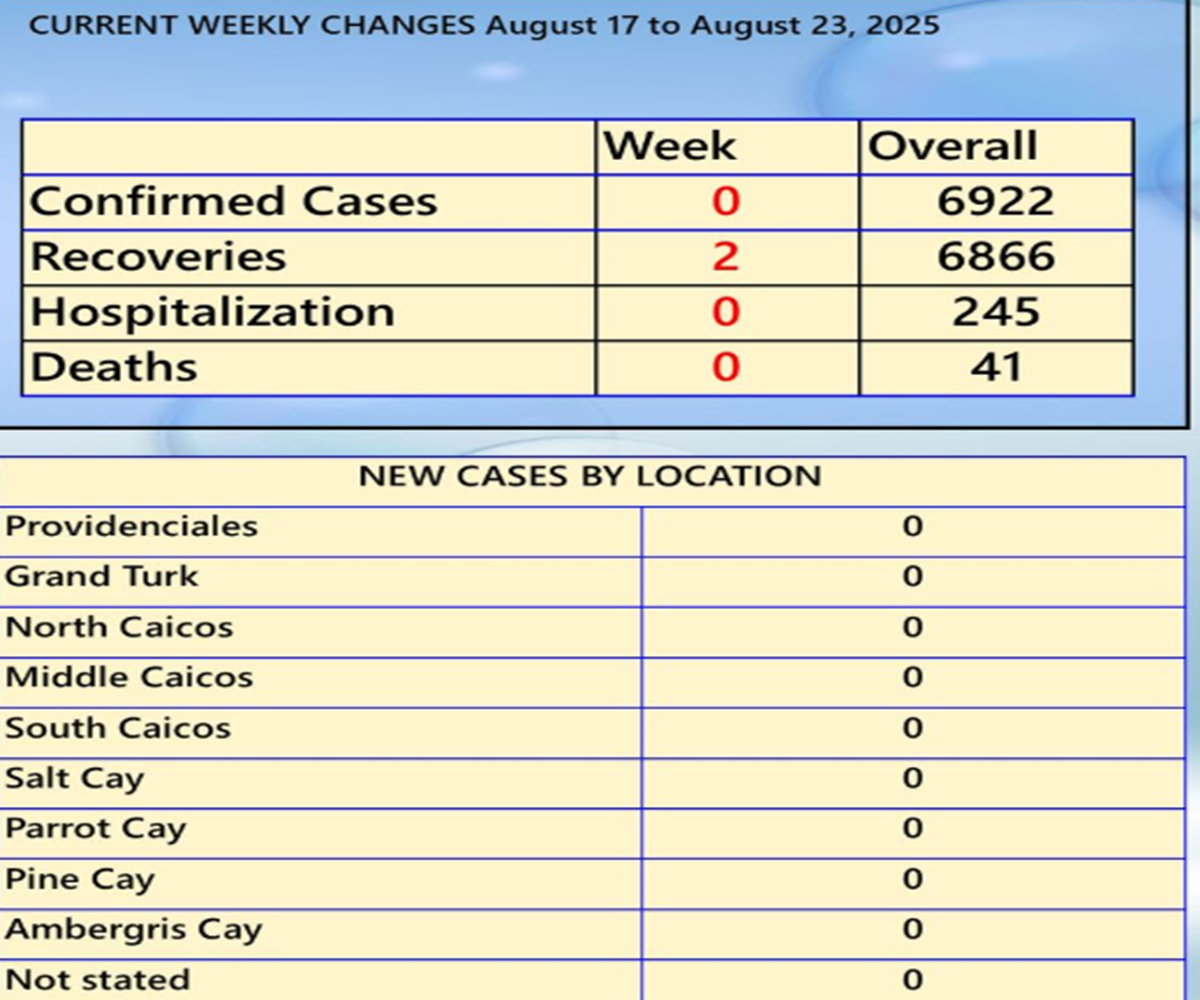Providenciales, Turks and Caicos Islands, 22 August 2025 — A high-level delegation from the Ministry of Health and Human Services (MOHHS) has successfully concluded strategic working visits to Florida and the Cayman Islands from August 5–13, 2025. The mission aimed to strengthen the Treatment Abroad Programme, explore innovative health system models, and advance the Turks and Caicos Islands’ health sector reform agenda through strategic regional partnerships.
Delegation Members:
- Hon. Kyle Knowles – Minister of Health and Human Services

MoHHS Team with Health City Executive Management Team
- Mrs. Desiree Lewis – Permanent Secretary, Health and Human Services
- Mr. Lynrod Brooks – Director, Health Policy and Planning
- Ms. Florinda Talbot – Contract Performance Manager
- Mrs. Romaine Missick-Smith – CEO, Health Regulations Authority
- Ms. Jasmine Malcolm – Executive Administrator, MOHHS
Minister of Health and Human Services, Hon. Kyle Knowles, highlighted the significance of these engagements:
“These visits were not ceremonial; they were strategic, focused, and impactful. In Florida, we reinforced partnerships with leading healthcare providers to ensure TCI patients referred overseas receive the highest standards of clinical care and patient support. In the Cayman Islands, our mission was two-fold: to study the operations of the Cayman Islands Health Services Authority as a model to guide the establishment of our own Health Services Authority, and to strengthen ties with Cayman-based treatment partners, where many of our patients are referred under the Treatment Abroad Programme. Both visits underscored that small island states share many health challenges, and that collaboration, innovation, and adapting best practices to our local context are essential to achieving better health outcomes for our people.”
Florida – Strengthening the Treatment Abroad Programme

MoHHS Team with Cayman Minsterial officials
During the period August 5–9, the delegation visited Broward Medical Center, University of Miami Health System, Cleveland Clinic, Nicklaus Children’s Hospital, and the International Reinsurance Managers Network. They also toured REVA Air Ambulance Services to review medical evacuation operations and patient transfer management. Discussions centered on patient care pathways, specialized services in ophthalmology, cardiology, oncology, and pediatrics, family-centered care models, advanced telemedicine for pre- and post-treatment consultations, and reinsurance strategies for high-cost overseas cases. Key outcomes include agreements to expand telehealth consultations, develop a standardized referral package to reduce delays, explore reinsurance arrangements to safeguard public health budgets, and establish specialized pediatric transfer protocols.
Cayman Islands – Health Sector Reform and Treatment Abroad Partnerships
From August 10–13, the delegation engaged with senior executives at Health City Cayman Islands, including Dr. Binoy Chattuparambil (Clinical Director), Shomari Scott (Chief Business Development Officer), Rebecca Brooks (Head of Marketing and Sales), and Ingrid Harris (Sales and Marketing). The team toured two hospital facilities and held in-depth discussions with Lizzette Yearwood, Chief Executive Officer along with leadership staff of the Cayman Islands Health Services Authority
The focus was two-fold:
- Health Sector Reform – Examining governance, financial management, and operational structures of the Cayman Islands HSA model

MoHHS Team with CEO and senior official Cayman HSA
to inform TCI’s development of its own Health Services Authority.
- Treatment Abroad Strengthening – Reviewing current referral arrangements with Cayman healthcare partners to enhance patient care coordination and improve treatment pathways for TCI patients referred to Cayman.
The delegation also met with Honourable Katherine Ebanks-Wilks, Minister for Health, Environment, Sustainability, and Honourable G. Wayne Panton, Parliamentary Secretary for Health. The team concluded with a meeting with Acting Premier Hon. Gary B. Rutty and Cabinet members, reaffirming the shared commitment to improving healthcare access and outcomes through regional collaboration.
Next Steps
The Ministry will incorporate lessons learned from these visits into ongoing health reform planning, ensuring that the proposed Health Services Authority is tailored to TCI’s needs while reflecting regional best practices. Efforts will continue to ensure that the Treatment Abroad Programme delivers efficient, sustainable, and patient-centered care.


 Health1 week ago
Health1 week ago
 world news1 week ago
world news1 week ago
 TCI News1 week ago
TCI News1 week ago
 TCI News1 week ago
TCI News1 week ago
 USA1 week ago
USA1 week ago
 TCI News2 days ago
TCI News2 days ago
 TCI News23 hours ago
TCI News23 hours ago














